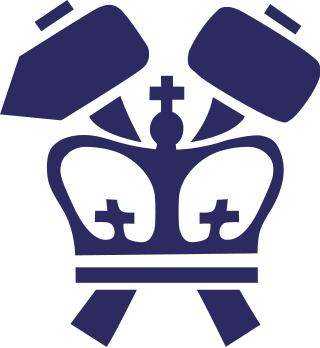Related Research Articles
CORC was a simple computer language developed at Cornell University in 1962 to serve lay users, namely for students to use to solve math problems. Its developers, industrial engineering professors Richard W. Conway and William L. Maxwell, sought to create a language which could both expose mathematics and engineering students to computing and remove the burden of mechanical problem-solving from their professors.

Juris Hartmanis was a Latvian-born American computer scientist and computational theorist who, with Richard E. Stearns, received the 1993 ACM Turing Award "in recognition of their seminal paper which established the foundations for the field of computational complexity theory".

PL/C is an instructional dialect of the programming language PL/I, developed at the Department of Computer Science of Cornell University in the early 1970s in an effort headed by Professor Richard W. Conway and graduate student Thomas R. Wilcox. PL/C was developed with the specific goal of being used for teaching programming. The PL/C compiler, which implemented almost all of the large PL/I language, had the unusual capability of never failing to compile a program, through the use of extensive automatic correction of many syntax errors and by converting any remaining syntax errors to output statements. This was important because, at the time, students submitted their programs on IBM punch cards and might not get their output back for several hours. Over 250 other universities adopted PL/C; as one late-1970s textbook on PL/I noted, "PL/C ... the compiler for PL/I developed at Cornell University ... is widely used in teaching programming." Similarly, a mid-late-1970s survey of programming languages said that "PL/C is a widely used dialect of PL/I."

The Fu Foundation School of Engineering and Applied Science is the engineering and applied science school of Columbia University, a private research university in New York City. It was founded as the School of Mines in 1863 and then the School of Mines, Engineering and Chemistry before becoming the School of Engineering and Applied Science. On October 1, 1997, the school was renamed in honor of Chinese businessman Z.Y. Fu, who had donated $26 million to the school.

Nathan Mortimore Newmark was an American structural engineer and academic, who is widely considered one of the founding fathers of earthquake engineering. He was awarded the National Medal of Science for engineering.

David Gries is an American computer scientist at Cornell University, mainly known for his books The Science of Programming (1981) and A Logical Approach to Discrete Math.
Donald Peter Greenberg is the Jacob Gould Schurman Professor of Computer Graphics at Cornell University.
John A. Swanson is an American engineer, entrepreneur, and philanthropist. Swanson is the founder of ANSYS, Inc., a John Fritz Medal winner, and a member of the National Academy of Engineering. He is internationally regarded as an authority and pioneer in the application of finite-element methods to engineering.
Lee W. Schruben is an American educator, engineer and serves as the Professor and Past Chair, Department of Industrial Engineering and Operations Research College of Engineering, University of California at Berkeley. He is the former Andrew Schultz, Jr. Professor (1976–1998), Sibley College of Engineering, Cornell University, Department of Operations Research. Professor Schruben took his Bachelor of Science at Cornell’s engineering college in 1968, his Master of Science at the University of North Carolina in 1973 and his doctorate at Yale University in 1974.
Cornell University Programming Language is a procedural computer programming language developed at Cornell University in the late 1960s.

Roger William Herbert Sargent FREng FSA was an English chemical engineer who was Courtaulds professor of Chemical engineering at Imperial College London and "the father" of the discipline of Process Systems Engineering.
Warren Bicknell Mori is an American computational plasma physicist and a professor at the University of California, Los Angeles. He was awarded the 2020 James Clerk Maxwell Prize for Plasma Physics for his contributions to the theory and computer simulations of non-linear processes in plasma-based acceleration using kinetic theory, as well as for his research in relativistically intense lasers and beam-plasma interactions.
Richard Walter Conway was an American industrial engineer and computer scientist who was the Emerson Electric Company Professor of Manufacturing Management, Emeritus in the Johnson Graduate School of Management at Cornell University. Conway spent his entire academic career, both as a student and a professor, at Cornell and held faculty positions at Cornell in several different areas: industrial engineering, operations research, computer science, and management science. He was especially known for his work and publications in foundational questions about computer simulation methodology; in writing about production scheduling theory; in developing computer languages and language compilers, including the widely used PL/C dialect of IBM's PL/I language; in authoring or co-authoring textbooks about computer programming; and in developing simulation software for manufacturing. He was also the first director of the Office of Computing Services at Cornell.
References
- ↑ "William Maxwell". Institute for Operations Research and Management Sciences. Retrieved 13 May 2022.
- ↑ Maxwell, William L.; Conway, Richard W. (11 June 2014). "William L. Maxwell and Richard W. Conway" (Interview). Interviewed by Robert G. Sargent. Cornell University: North Carolina State University Libraries Computer Simulation Archive. Retrieved 14 May 2022.
- 1 2 Maxwell, William L. (11 June 2014). "William L. Maxwell, Ph.D." (Interview). Interviewed by Robert G. Sargent. Cornell University: North Carolina State University Libraries Computer Simulation Archive. Retrieved 14 May 2022.
- 1 2 "Dr. William L. Maxwell". United States National Academy of Engineering. Retrieved 13 May 2022.